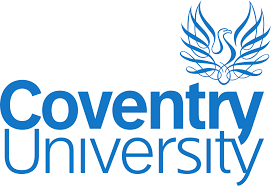
This master’s course aims to provide an in-depth understanding of disease processes, from the molecular to the body/systems level, alongside the practical applications of biomedical science and recent scientific developments in diagnostic laboratory pathology.
The programme is composed of a combination of modules which upon successful completion build to the award of a Postgraduate Diploma (PgDip) Biomedical Science, master’s (MSc) Biomedical Science, or as MSc Biomedical Science with Professional Experience. On the MSc course (with or without Professional Experience) you can choose one of three specialist pathways all of which aim to advance your knowledge and link to the Institute of Biomedical Science (IBMS) specialist training portfolio: Clinical Haematology and Blood Transfusion; Clinical Biochemistry and Immunology; and Infection Science. Part-time study is available for all programmes except if you choose to study the MSc with professional experience.
This biomedical science course includes the opportunity to gain extensive hands on experience in the laboratory, including use of diagnostic instruments encountered in a clinical setting and contemporary techniques in molecular biology. You should appraise current developments in genomics and regenerative medicine and their application to biomedical science, and explore the professional requirements for laboratory management including quality assurance, laboratory accreditation and regulation.
An additional exciting and innovative feature of this course is the inclusion of a module focussed on Entrepreneurial Practice. This module should enable you to understand and apply business management principles in problem-based scenarios. This should give you added skills and promotes innovative thinking which can be applied in many sectors of life, including biomedical science laboratories. This Entrepreneurial Practice module is accredited by the Chartered Management Institute (CMI) and students who successfully complete the module and meet CMI evidence requirements can gain a Level 7 certificate in Strategic Leadership and Management. Please see Accreditation and Professional Recognition section.
MSc Biomedical Science students undertake a research-based project involving planning, realisation, analysis and reporting of an independent research investigation. Within the School of Life Sciences, a range of project opportunities are available, linked to staff research, including specialist areas of biomedical science such as sickle cell anaemia, cancer genetics and parasitology. Previous students have chosen topics such as investigation of natural products to improve antioxidant levels in sickle cells and the anticancer properties of natural products on a leukaemia cell line.
The MSc Biomedical Science with Professional Experience aims to produce master’s graduates who are not only knowledgeable about their chosen field of study but also have the skills and competencies, backed by real world experience, to apply these to the workplace. Thus, it aims to provide an innovative course structure for you to evidence your preparedness for future career options. The Professional Experience aspect involves two semesters (semesters 3 and 4 of the course) in a professional environment, which may be either on campus or with external providers, followed by a final semester in which a research investigation, carried out as part of the Professional Experience, is reported in a formal thesis.* A variety of different Professional Experience opportunities may be offered, allowing you to develop particular skills and competencies and extend your particular interests. While all students are assured a professional experience placement, the range of opportunities available vary from year to year. Some are also competitive and selective, so it is not possible to guarantee a specific professional experience. Students on MSc Biomedical Science with Professional Experience are given additional support and are assisted to apply for, and secure, professional experience opportunities during their first two semesters of study by our Talent Team and the course director.
*Please note that we are unable to guarantee any placement opportunities and that any such opportunities referred to on this webpage may be subject to additional costs (e.g. travel, visas and accommodation etc.), competitive application, availability and/or meeting any applicable visa requirements. To ensure that you fully understand the requirements in this regard, please contact the Course Director or the International Office for further details if you are an EU or International student.
The requirements for admission for PgCert/PgDip and MSc Biomedical Science are:
or
| Listening | Reading | Writing | Speaking | Overall |
|---|---|---|---|---|
| 5.5 | 5.5 | 5.5 | 5.5 | 6.5 |
Please write to us at info@unihelpline.com or call us at UAE: +971 50 586 3293 I India +91 755 895 1509 l UK +44 7435 456580